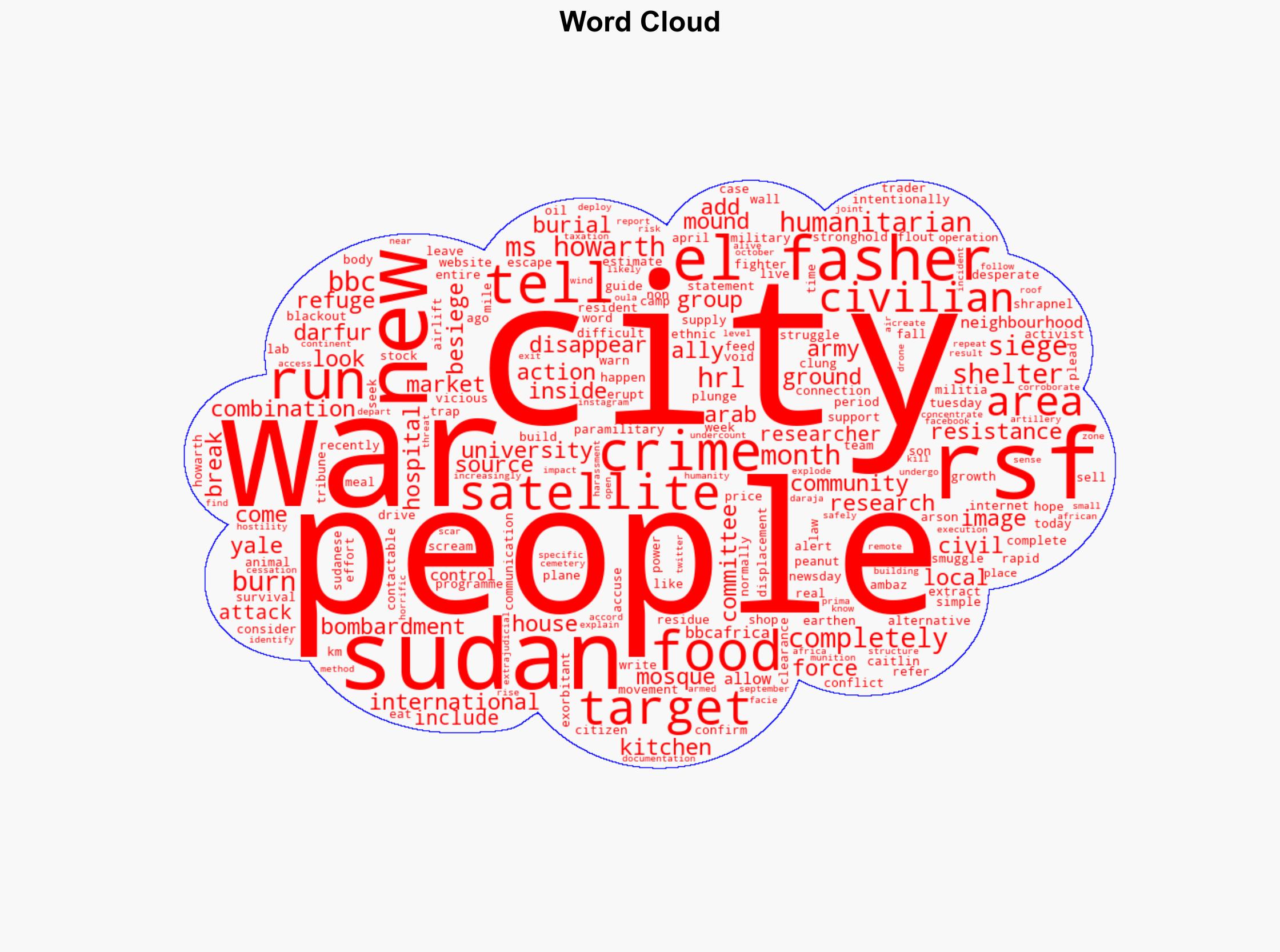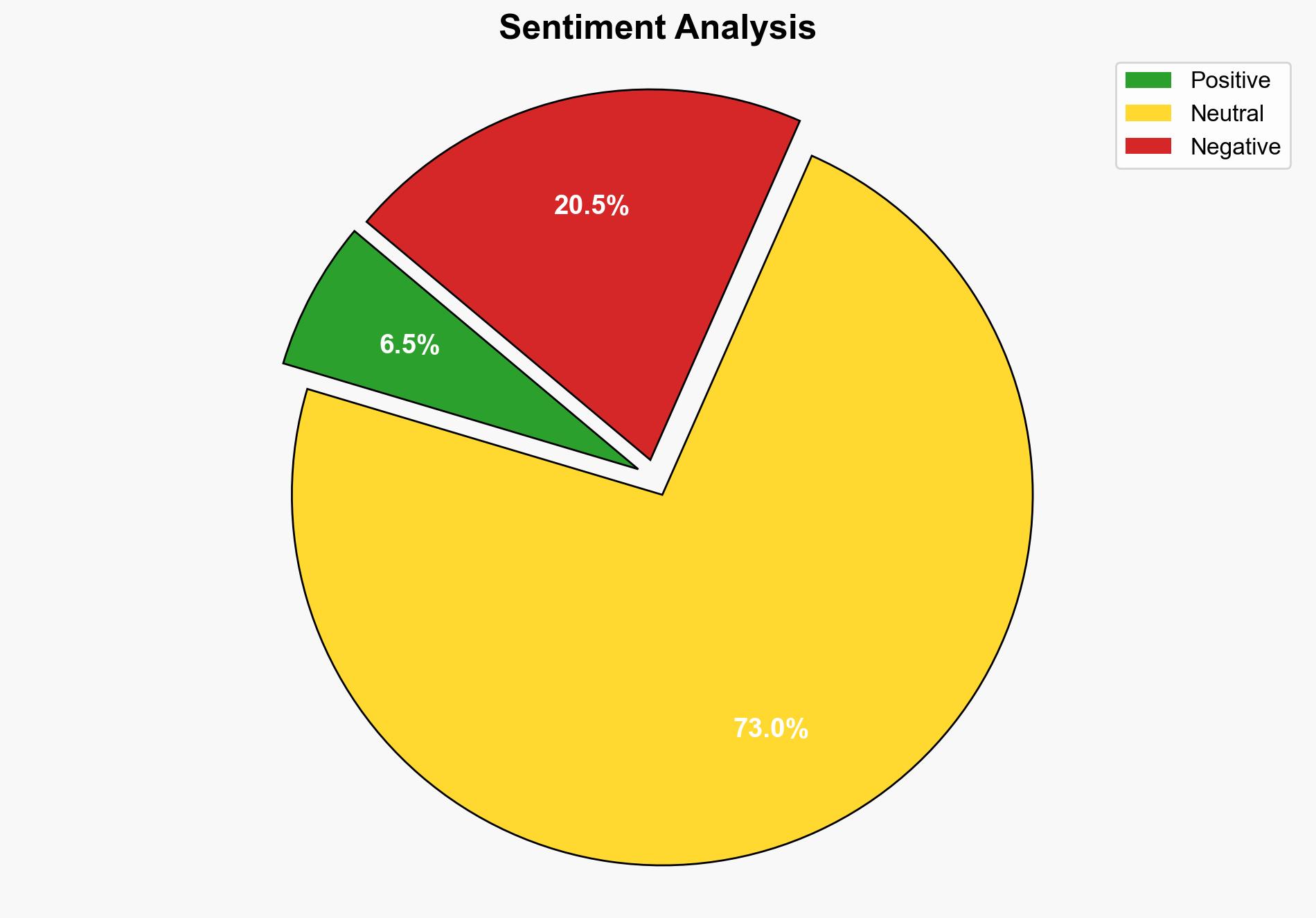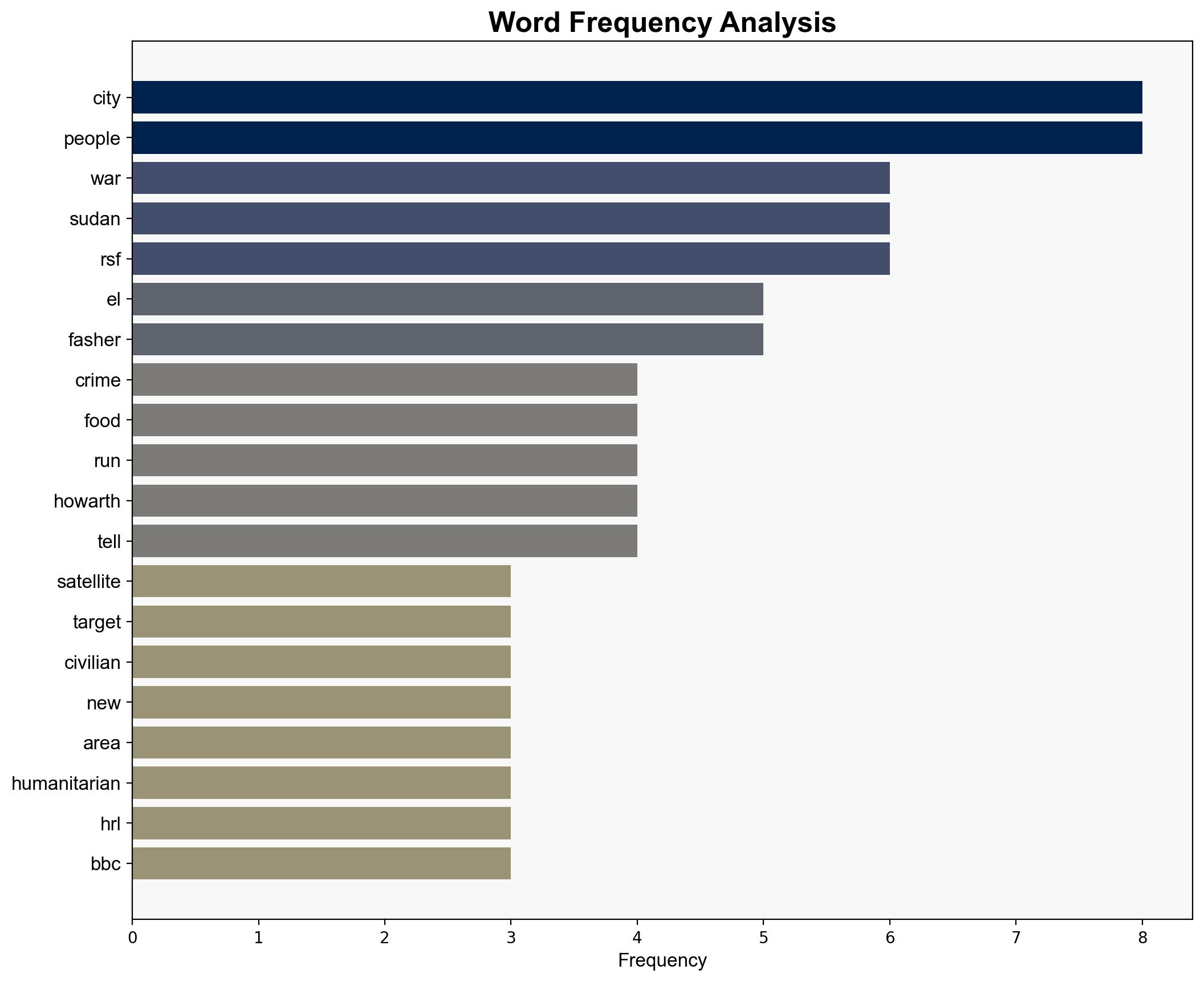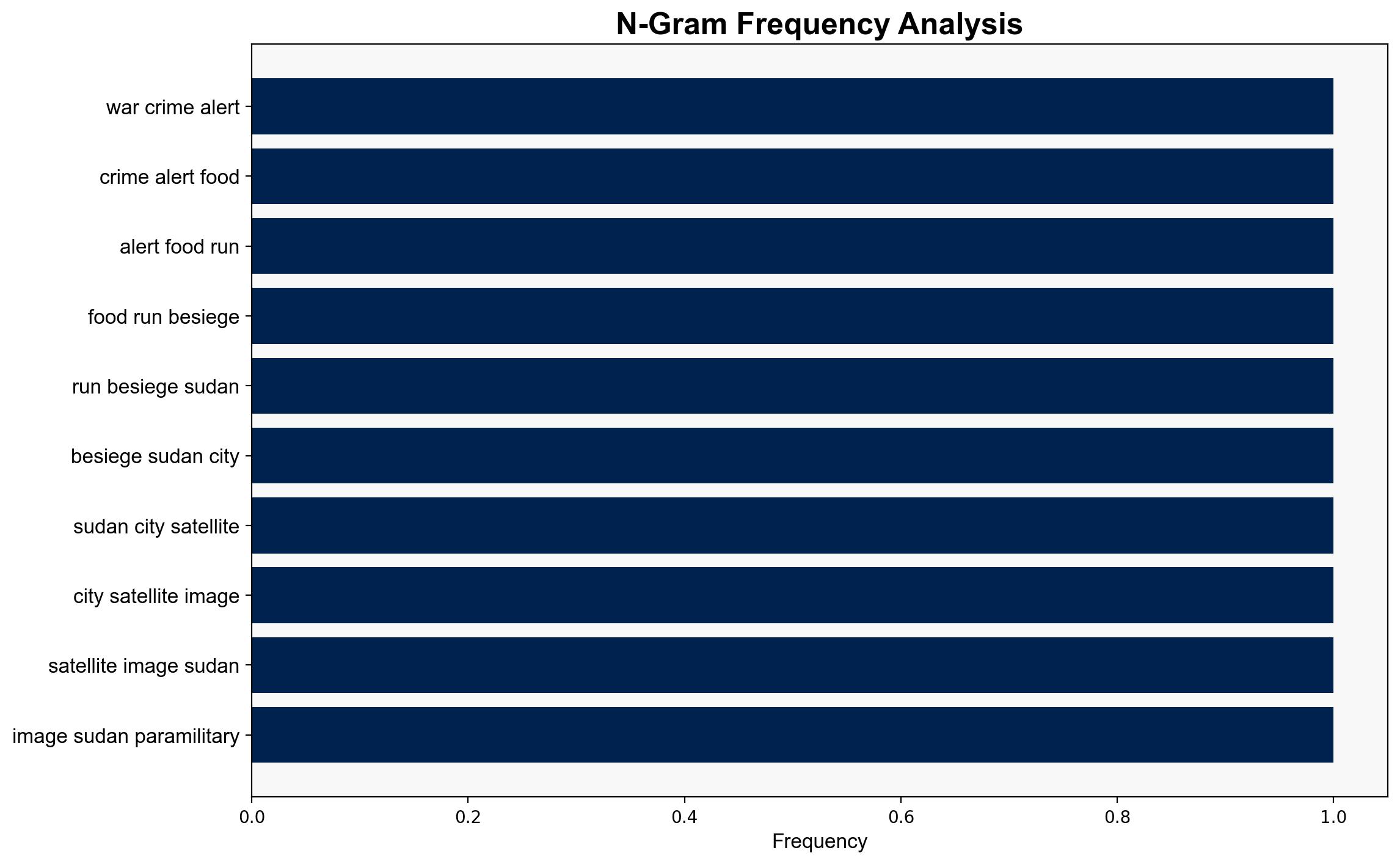War crimes alert as food runs out in besieged Sudan city – BBC News
Published on: 2025-10-15
Intelligence Report: War crimes alert as food runs out in besieged Sudan city – BBC News
1. BLUF (Bottom Line Up Front)
The most supported hypothesis is that the Rapid Support Forces (RSF) are intentionally targeting civilians in El Fasher, Sudan, as a strategy to exert control and eliminate resistance. This is supported by satellite imagery and reports of systematic attacks on civilian infrastructure. Confidence level: High. Recommended action: Increase international diplomatic pressure on the RSF and Sudanese government to allow humanitarian access and cease hostilities.
2. Competing Hypotheses
1. **Hypothesis A**: The RSF is intentionally targeting civilians in El Fasher to exert control and eliminate resistance. This is supported by reports of systematic attacks on civilian infrastructure and the construction of new burial sites.
2. **Hypothesis B**: The RSF’s actions are primarily defensive, aimed at securing their position against military forces, with civilian casualties being collateral damage rather than intentional targets. This could be inferred from the RSF’s need to maintain control over strategic locations.
Structured Analysis: Using Analysis of Competing Hypotheses (ACH), Hypothesis A is better supported due to consistent reports of targeted attacks on civilian areas and the strategic use of siege tactics to weaken civilian morale.
3. Key Assumptions and Red Flags
– **Assumptions**: Hypothesis A assumes that the RSF has a strategic interest in targeting civilians to break resistance. Hypothesis B assumes that civilian casualties are unintended.
– **Red Flags**: The lack of independent verification due to communication blackouts and limited access raises concerns about the accuracy of casualty reports.
– **Blind Spots**: Potential underreporting of RSF casualties or internal dissent within the RSF could skew the understanding of their strategic motivations.
4. Implications and Strategic Risks
– **Escalation Risks**: Continued targeting of civilians could lead to increased international intervention or sanctions, further destabilizing the region.
– **Humanitarian Crisis**: The siege and lack of food could result in a significant humanitarian disaster, increasing refugee flows and regional instability.
– **Geopolitical Impact**: Prolonged conflict may attract foreign actors, complicating peace efforts and potentially leading to proxy conflicts.
5. Recommendations and Outlook
- Engage in diplomatic efforts to pressure the RSF and Sudanese government to allow humanitarian access and cease hostilities.
- Consider imposing targeted sanctions on RSF leaders to deter further war crimes.
- Scenario Projections:
- Best Case: Ceasefire agreement and humanitarian access are achieved, reducing civilian casualties.
- Worst Case: Escalation of conflict leads to broader regional instability and increased civilian suffering.
- Most Likely: Continued siege with intermittent international pressure, limited humanitarian access.
6. Key Individuals and Entities
– Caitlin Howarth, University Humanitarian Research Lab
– Resistance Committee of El Fasher
– Rapid Support Forces (RSF)
7. Thematic Tags
national security threats, humanitarian crisis, regional conflict, war crimes




